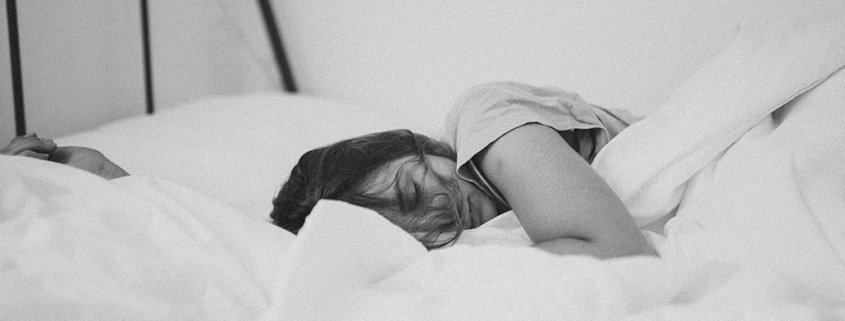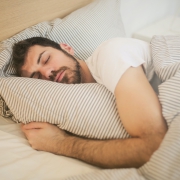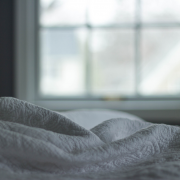Simple Ways to Improve your Sleep for Athletic Performance
The quality of our sleep has huge implications for athletic performance. Sleep is essentially the time when physical and mental recovery occurs. With good cognitive function and physical readiness being required for us to perform at our peak, it is obvious to see how it is important that we have good quality sleep to perform at our best.
Start listening to our circadian rhythms
“We are the supremely arrogant species; we feel we can abandon four billion years of evolution and ignore the fact that we have evolved under a light-dark cycle. What we do as a species, perhaps uniquely, is override the clock. And long-term acting against the clock can lead to serious health problems”
Professor Russell Foster
Our sleep patterns our guided by circadian rhythms, which essentially act as our body clock and determine the appropriate time for hormone release, which in the case of sleep is melatonin. With the invention of the light bulb and screens has come the ability to overcome this natural body clock. The presence of blue light reduces the secretion of melatonin, increasing alertness and keeping us awake. This delays the onset of sleep and reduces the amount of time that we spend asleep. By cutting out screens as you prepare to go to sleep you can ensure that your onset of sleep is faster and thus your time in bed is more efficient.
Think in cycles not hours
“Eight hours sleep is an average amount of sleep people get per night, and it somehow seems to have become a recommended amount – for everyone. The resultant pressure put on getting this is incredibly damaging and counterproductive to getting the right amount of sleep that we individually need”
Nick Littlehales
To maximise the quality of our sleep we should quantify sleep in terms of cycles, not hours. One sleep cycle lasts approximately 90 minutes and hence if we can time our sleep to wake up at the end of a cycle we can wake up at the lightest point of our sleep and feel refreshed and ready to start the day.
We should also not be too concerned about the amount of sleep we get each day but instead over the whole week. In his book “Sleep”, Littlehales suggests that we should be getting 35 cycles per week, averaging 5 cycles a day, which works out as 7 hours 30 minutes. This approach is much more achievable than consistently hitting 8 hours which can be quite pressuring and stressful and a cycle approach is reflective of how we actually sleep. Littlehales says that this approach reduces the stress hormones released from struggling to sleep and allows us to get effective rest and recovery.
Apps like Sleep Cycle ensure that your alarm wakes you up at the lightest point of sleep possible meaning that you wake up feeling refreshed and ready to start the day.

Be more consistent
Our body adapts to the time we fall asleep and thus by being more consistent, we can fall asleep quicker and ensure the time that we spent in bed is efficient. Not only is our sleep more efficient when we are consistent, but we also get more slow-wave and REM sleep – the times when physical and mental recovery occurs respectively. This allows us to maximise the benefits of training and perform at our best.
Laura Kline, Rewire Athlete, tells us that by developing a consistent routine she has been able to ensure she gets adequate sleep. “By 8:00 I have my magnesium drink and try to limit my screen time. I aim to be in bed by 9:30 – I find that following a set schedule makes a difference as my body knows it’s time to shut down.” Laura says that by doing this she can typically fall asleep within minutes and on the inevitable days that she can’t follow her routine she notices a difference the next day.
Optimising our sleep is not necessarily about getting more sleep, but about making the time that we spend in bed as efficient as possible. Only by working to improve the way that we sleep can we truly allow for sufficient recovery to develop our athletic performance.
Join Our Community!
Further Reading:
Blue light from light-emitting diodes elicits a dose dependent suppression of melatonin in humans
West et al.
Journal of Applied Physiology, 2011
Sleep: Change the way you sleep with this 90 minute read
Nick Littlehales
New Feature: Sleep Consistency – Why We Track it, How Do You Compare?
Whoop
‘Arrogance’ of ignoring need for sleep
James Gallagher














